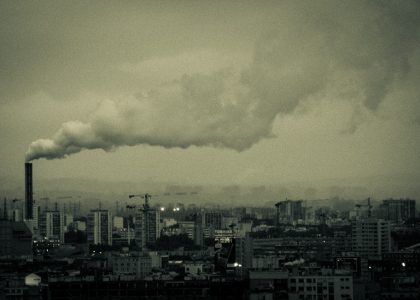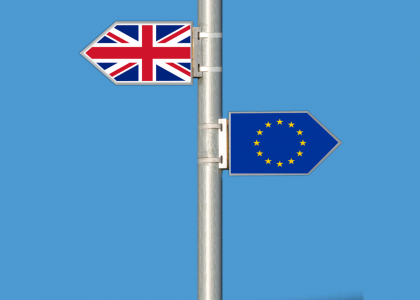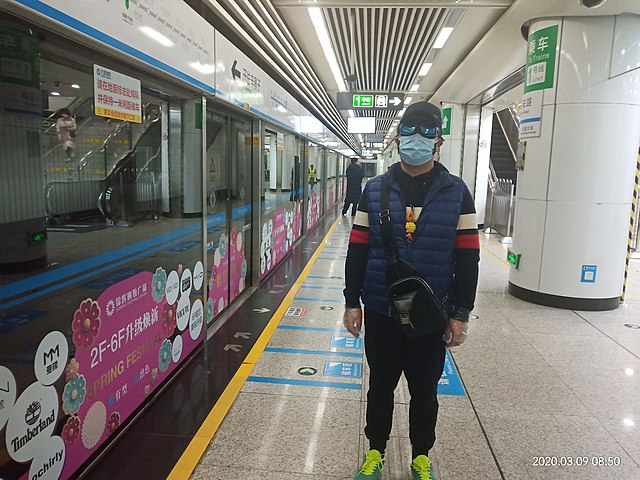Interview with Mr Alfredo Pérez-Rubalcaba a key figure in Spanish politics. The former Interior Minister, Minister of Education, Deputy PM and leader of the Spanish socialist party was interviewed by one of our students in Madrid last autumn. He unfortunately passed away in May. With his loss we say goodbye to a tenacious politician and a key figure in ending the armed struggle with the ETA terrorist group.
Interview in Spanish and translation into English by Khalea Robertson (Final year degree student in Modern Language (Spanish) with International Development at UEA)
This interview was first published in Spanish in La Taberna UEA (14 December 2018): http://www.la-taberna.org/actualidad-articles/2018/12/13/acabar-con-eta-no-supona-acabar-con-el-pensamiento-de-cientos-de-miles-de-vascos
Who was Alfredo Pérez Rubalcaba?
By Alfredo Castro-Jiménez (La Taberna UEA editor and Spanish Tutor) and Alberto Hijazo-Gascón (Head of Spanish)
“I live better, I sleep better and I earn less, but in general, life is better”. This is how Alfredo Pérez Rubalcaba (Solares, Cantabria, 1951-Madrid, 2019) talked about his new life, which started when he left politics in July 2014. Unfortunately, his new life did not last long, not even for five years. A stroke took the life of Mr Pérez Rubalcaba on 10 May 2019. He was a key figure in post-Franco Spanish politics. He held a number of important ministerial roles whilst in government, including Minister of Education and Minister of Presidency with the Prime Minister Felipe González, and Deputy PM to José Luis Rodríguez Zapatero. He was Interior Minister when ETA terrorists ended their armed struggle. He almost become PM when he led the PSOE into the 2011 election, in the middle of the economic crisis in Southern Europe.
Mr Rubalcaba left the political field after 32 years, he dedicated all his life to Spanish politics, since the “Spanish transition to democracy” and during the governments of Felipe González in the 80s. La Taberna UEA, the first publication in Spanish at the University of East Anglia, had the opportunity to interview Mr Rubalcaba last December. Our finalist student Khalea Robertson interviewed him at his office at the Complutense University in Madrid, to which he had returned as a lecturer in Organic Chemistry after leaving politics. Committed, understanding and tenacious he talked about the friends he had lost, about the end of ETA, about feminism, Chemistry and football. With Mr Rubalcaba’s loss, we say goodbye to a particular way of doing politics and to the historical PSOE that was rooted in the Transición and a two-party system.
Khalea Robertson (K.R): I read that as a university student, you ran a 100m dash in 10.9 seconds at a meet. That’s impressive! What do you think has remained with you from your time as an athlete?
Alfredo Pérez Rubalcaba (A.P.R): I really enjoyed athletics and for a few years of my life, particularly between 17 and 19 years old, I dedicated a lot of time to it, so I was very good, or my times were promising to say the least. But at 19 I had a very serious injury and I couldn’t run for an entire year. I tore a muscle and by the time I could run again, the sport had moved on. But during those 2 or 3 years, I wouldn’t say that I was at a professional level, but semi-professional. I trained 8 or 9 times a week, went to training camps with the Spanish national team. I wasn’t going to be Carl Lewis, obviously not, but I could have run 10.4, 10.5 seconds, which is really good. But the injury ended my athletic career. I’ve thought that maybe it turned out to be good thing in the end because it allowed me to study more. I was so obsessed with running.
I developed tenacity through athletics. To run a decent time on the track, you have to train diligently and relentlessly, you have to make sacrifices, because sometimes training doesn’t go well. I think athletics, like politics, is an almost constant suffering, and with what is going on these days, I can’t even begin to tell you. I learned to suffer but to do it with a degree of dignity.
K.R.: You are now a university lecturer of Organic Chemistry, you attained your doctorate in 1978, and it is said that you had the potential to become one of the most prominent chemists in Spain… yet you ended up in politics.
A.P.R.: It wasn’t a decision I made. I come from a generation that grew up in politics with the resistance against Franco – me and many other colleagues: [former Secretary General of NATO] Javier Solana, Joaquín Almunia, José María Maravall, [former Prime Minister] Felipe González. It’s true that from my first years at university I joined left-wing organisations, represented them in my course, and I participated in political activities directly linked to the existence of a dictatorship in my country. But I never thought about becoming a politician. Never. I did my doctoral thesis, studied abroad, and was preparing to be an organic chemist.
In 1982, Felipe González wins the election and then something strange happens. Those of us who had worked on González’s campaign felt a sense of responsibility. My first boss in government was José María Maravall, Professor of Sociology at the Universidad Complutense, who called me one day to say he wanted me to join his Ministry [of Education and Science] so that I could work on implementing the policies put forward in the campaign that I was a part of. I felt obligated to go, if only for a short period of time. Then 30 years passed, but that’s how it goes.
We weren’t politicians, we participated in politics, which is different. I’ll put it another way: if Franco hadn’t existed, almost certainly I would have been an organic chemist, almost certainly. However, I will say that, for me, constructing a parliamentary speech is almost the same as constructing a lesson. Politics involves a lot of teaching.
K.R.: You are considered one of the crucial components of the successful ceasefire negotiations between the Spanish government and ETA during your second term as Interior Minister. How would you describe your role in the process?
A.P.R.: It was a two-pronged approach, because although I had to maintain a dialogue with ETA, at the same time, I had to go after them. It’s true that I negotiated with ETA to try to put an end to the violence, but I couldn’t put law enforcement aside, because I was the Interior Minister. It was kind of a Jekyll and Hyde situation but it had its advantages and I’ll explain the most important one to you: in the history of ETA, each time that there was a ceasefire, they exploited it to rearm themselves. I always thought that these ceasefires were purely tactical, meaning that they agreed to it when they were going through a rough patch and in the meantime, everyone would drop their guard a little. Then they would switch commands and equip more people. Ultimately, like with any terrorist movement, ceasefires have a tactical element and I never lost sight of that. Hence, when I was in charge of the security forces, I would always tell them that when a ceasefire is in place, you don’t work less but more, because they will be reorganising themselves. It worked out in the end.
K.R.: Do you believe that it is necessary to put yourself in your opposite number’s shoes and try to understand their point-of-view when you enter into negotiations? During the peace process, did you find that your opinion of nationalist sentiment and pro-independence movements, in the Basque Country or other regions of Spain, changed or became more nuanced?
A.P.R.: That is key. When you approach a discussion, essentially, you have to know two things: the first is what you want and how far you are willing to go for it, what your red lines are; the second is what the red lines of the person opposite you are. That’s vital. Try to put yourself in the other person’s shoes, see what room for manoeuvre there is, keep in mind both your boundaries and theirs. That is how you determine if an agreement can be reached and how long it might take, knowing more or less what the limits are. It is essential that you understand what the other party is thinking.
With respect to your second question, in the case of ETA, no. Because from the beginning, we realised that what they wanted was impossible. What ETA wanted was to gain political capital from the negotiation process, from having discussions with a democratic government. With ETA, you can talk about how to end the violence, what you can’t talk about is politics. Politics is done in parliament. Democracy cannot condone that someone with a gun is able to gain political capital – however little it may be – when there is a democratic parliament in place. You cannot substitute parliamentary debate, held by representatives elected by citizens, for a discussion with some guys who go around killing people. It’s impossible.
K.R.: In the documentary film El fin de ETA (The End of ETA), another former Interior Minister, Jaime Mayor Oreja, claims that “no one has yet defeated ETA” because their “separation agenda” continues to form part of the political landscape not only of the Basque Country but also of Catalonia. What is your opinion on that? Do you believe that separatist movements are inextricably linked to ETA’s vision?
A.P.R.: The Spanish Constitution allows Spanish citizens to demand rights to independence. Pro-independence parties can’t even exist in some European countries. In Portugal and Germany, there are significant barriers to that, here no. You can be an advocate for Catalan, Galician, Basque, or Murcian independence, that’s fine. What you cannot do is murder in the pursuit of your objectives. What you cannot do is kill whoever doesn’t think like you. And that is the discussion surrounding terrorism. What we said to ETA is that you can promote your ideas through Batasuna – which is a political party – but you cannot kill those who don’t think like you. And they stopped, they stopped seven years ago because the State defeated them. Honestly, they stopped killing because they had no other choice but to stop. It’s not because they decided “now we’ll be good”. It was simply “we can’t do bad things anymore because they are coming after us, they are hounding us. It’s over, we can’t continue, we’ve been defeated.” Since that moment, Batasuna eschewed violence and from there, were able to promote their agenda in the parliamentary chamber.
Clearly there are pro-independence supporters in Euskadi [Basque name for the region], hundreds of thousands. Getting rid of ETA does not mean getting rid of the convictions of hundreds of thousands of Basques. Those who believe that getting rid of ETA is the same as putting an end to pro-independence sentiment are showing that they have no understanding of our constitution. The state does not persecute people for being pro-independence, it persecutes people because they commit murder to achieve independence.
K.R.: Did you lose any friends or colleagues to the armed resistance? Did you ever fear for your own life?
A.P.R.: I lost Fernando Buesa, who was a Councillor for Education when I was Secretary of State. I lost Ernest Lluch, Minister of Health and Consumption when I was in [Gonzalez’s] government. I remember that he supported Barcelona and I support Real Madrid and on Mondays he would always call me if Madrid had lost and Barça had won. First thing in the morning, I would have the Minister on the phone. Ernest was a really good friend of mine.
Fear? You don’t stop to think about it. You don’t stop to think, but I definitely looked under my car many times, many. Because truthfully, I have had bodyguards with me for a long time. I still have them, in fact. I used to look under my car, of course. And right here in Madrid! In Euskadi, they would look every day, in the morning and evening, each time that I stepped out of the car. When you have to crouch to check your car, you feel afraid, or the closest thing to fear. Of course you are worried, especially for the people around me, my wife, for example. I think worry is what I have felt. Listen, if something happened to Pilar because of me… that’s what you think about.
K.R.: Do you think that what is happening in Catalonia at the moment will be in the history books of future generations?
A.P.R.: Yes. Unfortunately, yes. It is the most significant political crisis that we have had in Spain in the last 40 years. Spain established its Constitution during the Transition period. The issue is that now, after 40 years, maybe we have to change some things, have another look at it. Political systems are restructured, reformed, but during the last 40 years we have had to change the country from top to bottom. Spanish democracy’s greatest crisis is what is happening in Catalonia.
There is a solution [but] I don’t see it happening any time soon. Because at the moment, there is a necessary judicial process underway because when laws are broken, judges get involved, and there is a government which has broken the law, and governments which break the law have to go to court and there it is decided what must be done. Until that is over, nothing else can happen. Afterwards, a political solution will have to be sought, a solution which cannot be independence, which cannot be the right to decide, the right to self-determination, because Catalonia is a part of Spain, and Spain without Catalonia would be something different, a different Spain. In other words, if Catalonia leaves and Spain changes, Spaniards have the right to have a say on what has been our centuries-long coexistence. It cannot be that one morning I decide to leave without first speaking to you. It is an amputation. So, a solution must be found with the idea that we are citizens of one state and that demands that we have equal rights and obligations. This must be supported through dialogue, by changing some laws or a statute, maybe even the Constitution. I believe that political solutions exist, but there are limitations and red lines, like I mentioned before.
K.R.: On your social media, you’ve made comments in support of feminism. Do you consider yourself a feminist?
A.P.R.: Yes, but only now. I wasn’t always. And I say that because now, suddenly, Spain has become a feminist country, everyone is a feminist, they don’t do anything else in life but fight for equality between men and women. It’s all a lie, it is completely fake. I have been a feminist for some time now and I will say that my political opinion has changed, in part, because I have spoken with feminists and seen things. If you were to ask me this in ‘82, I would have said, “well, sure, I support equality”. It is such a shame that I didn’t see things in 1982 as I do now. It is clear that Spain has changed for the better.
Feminism is equality, basically equality. That is how I understand feminism as part of my political agenda. Socialists, if we are to be defined by something, it is for having a sense of equality and freedom.





